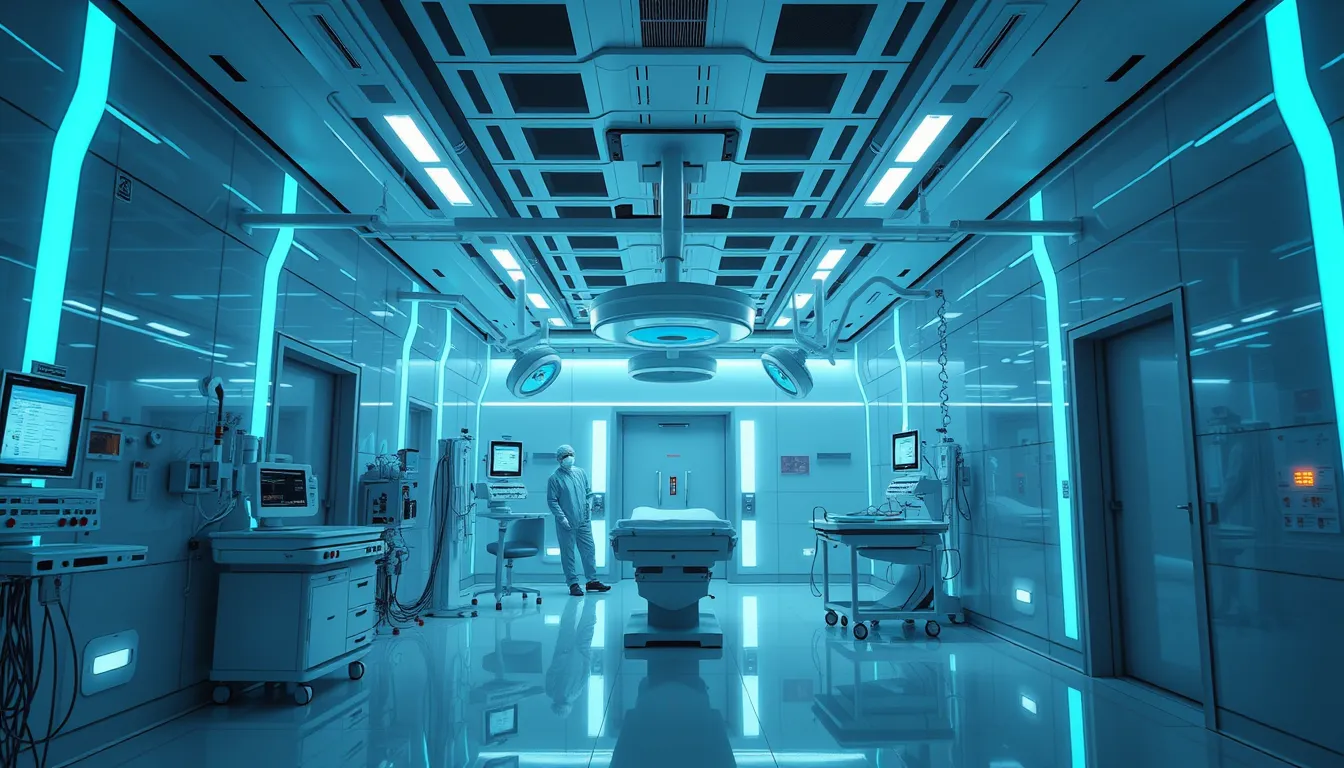Now Reading: Powerful AI in Healthcare Diagnostics: Boosting Patient Care
-
01
Powerful AI in Healthcare Diagnostics: Boosting Patient Care
Powerful AI in Healthcare Diagnostics: Boosting Patient Care

Powerful AI in Healthcare Diagnostics: Boosting Patient Care
The integration of artificial intelligence in healthcare has been nothing short of transformative. Today, we explore the incredible benefits and practical applications of AI in healthcare diagnostics. This advanced technology is rapidly evolving, bringing hope and innovation to patient care and medical imaging across the globe.
The Rise of AI in Healthcare Diagnostics
Across hospitals and research centers, AI is reshaping the diagnostic process. With the ability to analyze complex data sets, AI algorithms are assisting in early disease detection and offering more accurate assessments. These diagnostic tools can reduce human error and streamline the process, ultimately saving lives.
Key benefits of implementing AI in healthcare diagnostics include:
- Improved accuracy in detecting diseases
- Faster diagnostic turnaround times
- Reduced workload for medical professionals
- Enhanced personalized patient care
This transformation is largely due to the continuous evolution of machine learning and deep learning techniques, which empower AI systems to learn from vast amounts of medical data. The increased integration of technology in healthcare facilitates better diagnostic outcomes.
How AI Improves Diagnostic Accuracy
One frequently asked question is: How does AI improve diagnostic accuracy? The answer lies in the sophisticated algorithms that can identify patterns invisible to the human eye. For instance, in medical imaging, AI tools analyze scans with greater precision to pinpoint subtle irregularities that may indicate early-stage diseases. This level of detail helps doctors make better-informed decisions and tailor treatments to individual patients.
A breakdown of the process:
- Data Collection: AI systems gather imaging data from various diagnostic tests.
- Pattern Recognition: Advanced algorithms analyze the data to detect abnormalities.
- Decision Support: The system provides insights and recommendations, assisting radiologists and other specialists.
Such improvements not only increase diagnostic certainty but also enable early intervention, which is crucial for many conditions.
Applications in Medical Imaging and Disease Prediction
Medical imaging is one of the main fronts where AI is making its mark. Tools that incorporate AI in medical imaging (such as X-rays, CT scans, and MRIs) have become indispensable in modern diagnostics. These systems can process high-resolution images quickly and identify potential issues that might be missed during manual reviews.
Furthermore, AI disease prediction is emerging as a promising field. By analyzing patient histories and genetic information, AI models can predict the likelihood of developing certain conditions. This proactive approach to healthcare can lead to preventive measures being implemented sooner, effectively reducing the overall burden on healthcare systems.
Overcoming Challenges with AI in Healthcare
Although the benefits of AI are plentiful, the transition to AI-driven diagnostics is not without its challenges. Healthcare providers face several hurdles, such as:
- Ensuring data privacy and security
- Integrating AI systems with existing medical infrastructure
- Training staff to work effectively with new technologies
- Regulatory and ethical considerations in automated diagnostics
Addressing these issues requires a collaborative approach between medical professionals, technologists, and policymakers. By establishing clear guidelines and robust security measures, society can safely harness the power of AI in healthcare diagnostics.
Future Trends and Innovations
Looking ahead, the trend in AI diagnostics indicates stable growth with a continued increase in accuracy and reliability. Future research is likely to expand into areas like personalized medicine, where AI can tailor treatment plans based on an individual’s unique health profile.
Several innovative trends include:
- Integration of AI with wearable health devices
- Enhanced telemedicine capabilities using real-time diagnostic data
- Development of AI systems that continuously learn and update their algorithms
Each of these innovations is setting the stage for a healthcare revolution. As AI becomes more sophisticated, its role in diagnostics will only expand, leading to smarter, more responsive healthcare systems.
Collaboration, Training, and Expansion
For successful integration of AI, continuous collaboration between technology developers and healthcare professionals is crucial. Regular training sessions and educational programs help medical staff stay updated on the latest advancements. Partnerships between research institutions and healthcare providers also play a pivotal role in refining these AI tools.
To learn more about how AI transforms the medical field, visit the official website of organizations pioneering these efforts, such as the National Institutes of Health (https://www.nih.gov) and leading tech giants like Microsoft (https://www.microsoft.com).
Conclusion
As we have seen, AI in healthcare diagnostics is not just a technological advancement—it represents a significant leap forward in how we approach patient care. By improving diagnostic accuracy, reducing waiting times, and offering insights into potential future conditions, AI empowers healthcare professionals to deliver better and more personalized care.
Investing in AI technology and overcoming its challenges will pave the way for revolutionary changes in healthcare. The future is undoubtedly AI-driven, and the potential benefits for both patients and healthcare providers are limitless.
In summary, the role of AI in healthcare diagnostics marks a turning point in medicine, emphasizing the importance of innovation, collaboration, and continuous improvement in the quest for better healthcare outcomes.

























